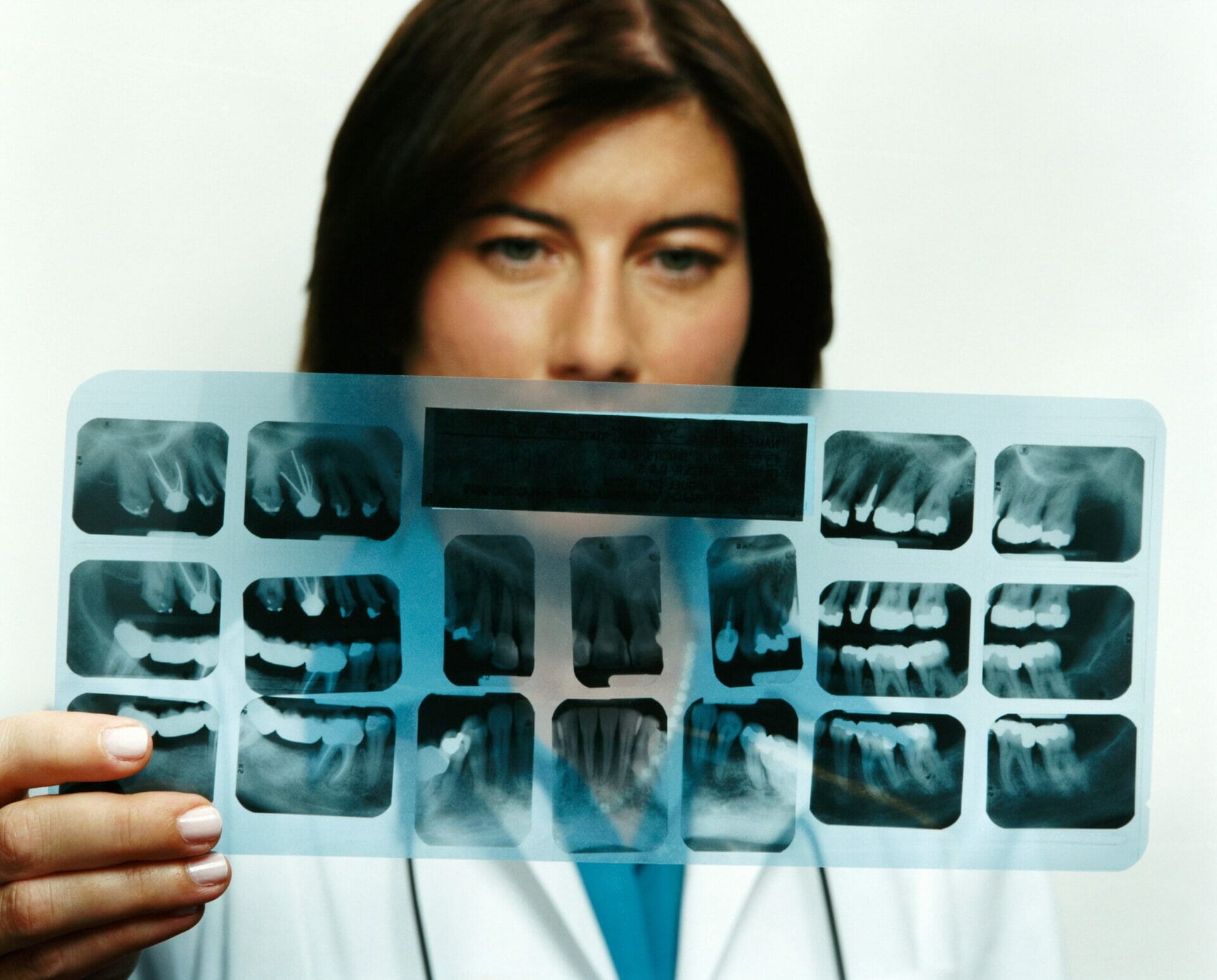
The majority of dental patients are hesitant about having x-rays (or "radiographs") taken. Each day at our office, we have a large number of patients decline routine radiographs. Many often tell us to "only take them if you need them". I totally understand their reservation.
In Medicine, x-rays carry with them a huge radiation load. To radiograph somebody's chest or spine every 1-2 years would be completely outrageous. Because of the high radiation load associated with most medical radiographs, they are only taken when a problem is suspected or when a patient is in pain. So why then, do we recommend routine dental radiographs every 1-2 years even in the absence of symptoms or signs of dysfunction?
Dental X-Rays have an extremely low radiation load. 2 Digital Bitewing Radiographs carry a radiation load of roughly 0.65mrems (millirems). This is roughly 1/100th the radiation load in a standard abdominal or pelvic x-ray, for comparison. The average North American absorbs 620mrems of radiation a year from non-medical/dental sources. Therefore, 2 routine bitewing radiographs will increase your annual radiation exposure by about one tenth of a percent.
Because of this very small radiation load, the benefit of taking dental x-rays to detect potential cavities, gum disease, abnormal lesions and abscesses/infections makes sense. In comparison, no rational person would recommend taking a pelvic x-ray every 1-2 years to monitor pelvic health.
It is important to note that, without x-rays, no Dentist can perform a complete checkup at your Dental Cleaning appointment. This is not to say that x-rays are necessary at every appointment. It just means that, when your Dentist looks at your teeth without x-rays, they can only assess the health of surfaces that can be seen in plain view. Here is a list of things that x-rays help us to assess:
Dental x-rays provide a means for early detection of problems with teeth and gums. In some cases, early detection can result in conservative approaches that don't require invasive treatment. Because the radiation load with dental radiographs is so low, the cost-benefit ratio favours taking them regularly to detect problems in the mouth. Additionally, having a clean set of images gives you the piece of mind in knowing that a full and complete exam found no problems in your mouth. That piece of mind is certainly worth a lot.
Thank you for reading this week!
If you would like to discuss your oral health care or gain an assessment or second opinion at our office, please request a consult with me here. I look forward to meeting with you!
This article aims to promote understanding of and knowledge about general oral health topics. It is not intended to be a substitute for professional advice, diagnosis or treatment. Always seek the advice of your Kitchener Dentist or other qualified healthcare provider with any questions you may have regarding a dental condition or treatment.
Services
Routine Dentistry & Tooth Repair
Oral Surgery & Tooth Removal
Prosthetic Dentistry & Tooth Replacement
Protective/Preventive Services
Teeth Whitening
Schedule an Appointment Now
